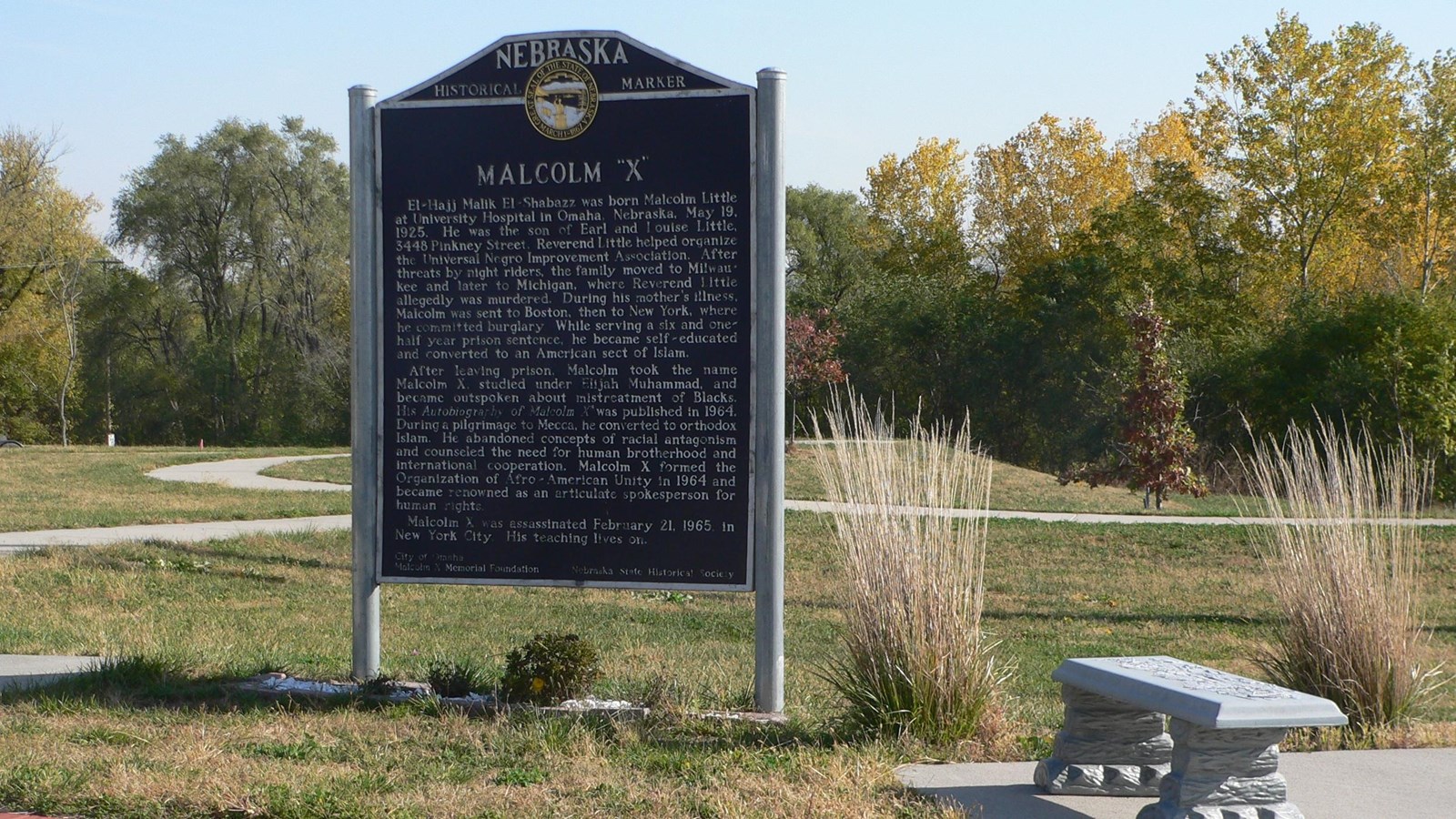Last updated: July 18, 2024
Place
Nebraska: Malcolm X House Site Omaha

Photo by Ammodramus, CC0, https://commons.wikimedia.org/w/index.php?curid=17144590
On May 19, 1925, Malcolm X (born Malcolm Little) was born in a now-demolished house on this site. As a civil rights leader he advocated racial separatism over integration and the legitimacy of violence in self-defense. He also championed the beauty and worth of blackness and black Americans' African past.
In 1952, Malcolm X joined the Harlem-based Nation of Islam--the Black Muslims--and became the protégé of its leader, Elijah Muhammad. Thanks largely to Malcolm X's skill as a militant and mesmerizing speaker, the Nation of Islam grew from 400 to at least 10,000 registered members. Like other Black Muslims, Malcolm X believed that whites were "the enemy." Integration was degrading and nonviolence ineffective, he said, and the "March on Washington" was the "Farce on Washington." African Americans should form a black state, he argued.
Growing impatience with Black Muslim passivity and a painful break with Elijah Muhammad in March 1964 caused Malcolm X to modify his hard-line stance. On a pilgrimage to Mecca, he observed a variety of skin colors, and a following extended trip to Africa and the Middle East broadened his experience and challenged him further. Hatred--not whites--was the enemy, he concluded, and nonviolent approaches to overcoming racism might work.
On February 14, 1965, unidentified attackers firebombed Malcolm X's New York house while he and his family were asleep inside. One week later, on February 21, Malcolm X was assassinated by Black Muslim extremists at a rally in New York City's Audubon Ballroom. The Autobiography of Malcolm X was published later that year.
Visit the National Park Service We Shall Overcome travel itinerary to learn more about the civil rights movement themes and histories. Also, be sure to check out Civil Rights subject site.
